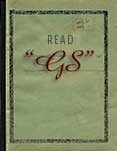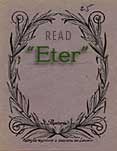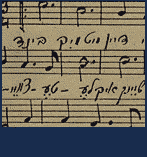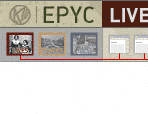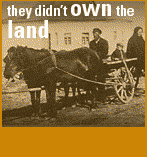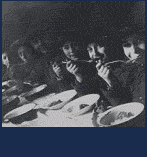

G.W.'s family could not afford to send him to school past the 6th grade. When he was about 15, he went out into the workforce to earn his living.
Eventually, I decided to learn to become a tailor. After Passover, during my second year out of school, I entered a small tailor's workshop and started to learn the trade. I bought a thimble and some needles and sat poking at a scrap of cloth until I learned how to stitch. It was very hard for me at first, because I had to get used to sitting in one spot all day.
During the first weeks I was bored and tired. My shoulders felt as though they were breaking from sitting hunched over a needle thirteen hours a day, but I felt that I had to do this, that I had no alternative. Somehow, I persevered and got through this period.
My boss was a short, fat man. He was so stingy that he would save the basting threads and reuse them. Gradually, after I had become somewhat used to things, he had me do various odd jobs. He made me wash the floor of the workshop, and he would have me carry packages to his home. When it came to teaching me, he was no expert, so I decided to look for another workshop, and, after only two months, I left him.
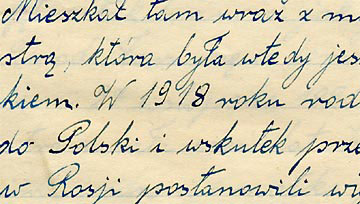
After Tisha B'Av  I entered another, larger shop, where they mostly made military clothes. There were four journeymen employed there, and I was the fifth employee [...]
I entered another, larger shop, where they mostly made military clothes. There were four journeymen employed there, and I was the fifth employee [...]
The workshop was in a small room with one window hidden from the sun. There were two sewing machines, an ironing board, an upholstered couch, several chairs, and a narrow tailor's workbench. It was very crowded. In front of this room was a smaller kitchen, and beyond that was another large room, which served as both a dining room and a bedroom.
[...]At first, the work went quite well; as soon as I arrived they showed me how to do various kinds of hand work. They didn't use me to do any odd jobs, because the other workers didn't allow it. One of them was the shop steward; he was a class-conscious worker, so I felt quite good about the new shop.
The situation changed. His boss began to send him to do errands in the barracks of the regiments who had ordered uniforms from him instead of teaching him tailoring skills.
Sometimes I would remind my boss that time doesn't stand still and that I wasn't learning anything. He would brush me aside without a reply, telling me that he still had plenty of time and that eventually I would know something. I would tell my father all about this, and he quarreled with the boss several times. This had some effect, and after every argument with my father the boss would teach me something [...]
The three years were nearly over. Gradually, I had begun to master the trade, but this had happened only because the other workers went on strike over money that the boss owed them. As I was an apprentice and didn't get any wages, they didn't ask me to strike. The boss was angry with them and wanted to spite them, so he said that he would work just with me.
I took advantage of the opportunity, and he started to teach me how to do some things, giving me one piece of work after another. During the two weeks that the strike lasted I learned how to make many things, including a pair of trousers.
The boss still owed me seventy-five zloty  , according to our contract. He didn't want to pay me, but I decided that I had to get the money, come what may. Seeing that our agreement was soon up, my father came and talked things over with the boss and his wife. Though she had to pay me, she screamed that she wouldn't. When they realized that they couldn't do anything about it and that I had the right to demand payment, she gradually paid me thirty zloty
, according to our contract. He didn't want to pay me, but I decided that I had to get the money, come what may. Seeing that our agreement was soon up, my father came and talked things over with the boss and his wife. Though she had to pay me, she screamed that she wouldn't. When they realized that they couldn't do anything about it and that I had the right to demand payment, she gradually paid me thirty zloty  .
.
When my father went to demand the remaining forty-five zloty  , they explained to him that he wouldn't get the money, and that if he forced them to pay through a union arbitrator, then the boss wouldn't sign my apprentice's certificate. The boss wasn't aware that the trade union office could force him to comply, but my father didn't want to go that far. He summoned the boss to appear before a union court, which ruled that he had to pay me what I was owed. He wrote out an IOU in court, because he had no choice; he had to pay what he owed me.
, they explained to him that he wouldn't get the money, and that if he forced them to pay through a union arbitrator, then the boss wouldn't sign my apprentice's certificate. The boss wasn't aware that the trade union office could force him to comply, but my father didn't want to go that far. He summoned the boss to appear before a union court, which ruled that he had to pay me what I was owed. He wrote out an IOU in court, because he had no choice; he had to pay what he owed me.
This was my only revenge. I used the money to have a new suit made.
I Join the Jewish Labor Bund
[...] For a long time I had been looking to become involved in an organization that represented my interests. When I was still in school I learned of the existence of these organizations, because many of my friends there belonged to various Zionist  groups. Even then I wondered what these organizations were doing, as the people in them were always feuding.
groups. Even then I wondered what these organizations were doing, as the people in them were always feuding.
When my friends invited me to join one of the four different Zionist groups that were around at the time, I replied that I didn't see eye-to-eye with organized movements that all strive toward the same goal and yet aren't united but are divided and fight among themselves. Therefore, I couldn't join them.
At the time it didn't even occur to me that there was an organization that was opposed to all forms of Zionism. Later I took night classes, where I met friends from my childhood who had become tailors or carpenters or were employed in other trades, and who had already joined Tsukunft  , the Bund's
, the Bund's  youth movement. They began to recruit me, informing me about the principles of socialism, and I realized that this was the cause that all workers must take up.
youth movement. They began to recruit me, informing me about the principles of socialism, and I realized that this was the cause that all workers must take up.

I decided that after I finished night school I would become a member of Tsukunft. I had started taking night courses before I began learning a trade. I finished the three levels of night school during the second year of my vocational training.
In fact, I joined the movement right away; it was still in its early days. Here I discovered a new life, a life full of belief in the future. It prompted me to think about describing the evil that I'd had to endure in the workshop, about denouncing everything that is dark and bleak, bloodthirsty and exploitative.
I thought that if I had someone to tell all this to, I would describe it and fix it in my memory forever. I hate how I have suffered, I hate the people who have exploited me; even now, when I think about them, I feel a surge of anger, and I can't forget--my hatred for them continues to grow.
The youth movement drew me in, and I became a part of it. I felt at home there. I started to understand my world and how best to live in it. I began to devote my free time to the organization and became an active member.
I started to think independently about everything around me, my material existence, my poor living conditions, both private and communal. I had to think about whether things had to stay the way they were or whether they might be different. I had to think about my station in life, which I had only partially attained, and about why I didn't even have the possibility of living better and enjoying life, nature, and everything created by humankind.
In today's hard times it's very difficult for me to find answers. One person lives at the expense of another, and that person lives at the expense of a third; the world trudges on in its crooked old way, and we can't attain our goals. This is why I had to start looking at life differently that I had previously.
[...]Young people live with hope and faith in a bright future. Those who are deeply convinced, believe. But there is a question as to when that day will come. When do we stop hoping? No one has determined this yet. I have set a limit, you might say, on my hope.
I think that the old ways will persist until the 1950s, certainly no longer. And then the day of true brotherhood among nations will come, the day of our ultimate belief in a completely classless society will approach, and people throughout the world will be free--they will be free.
What Became of G.W.?
It is believed that G.W. perished during the Holocaust not many years after he wrote his autobiography. His death is listed in the memorial book of his home town, but no details about how he met his death are given.




